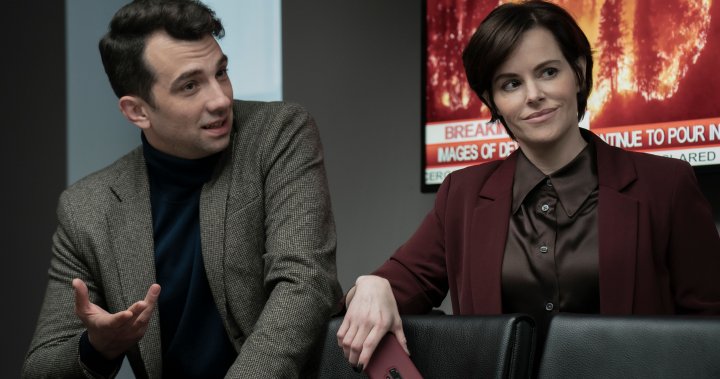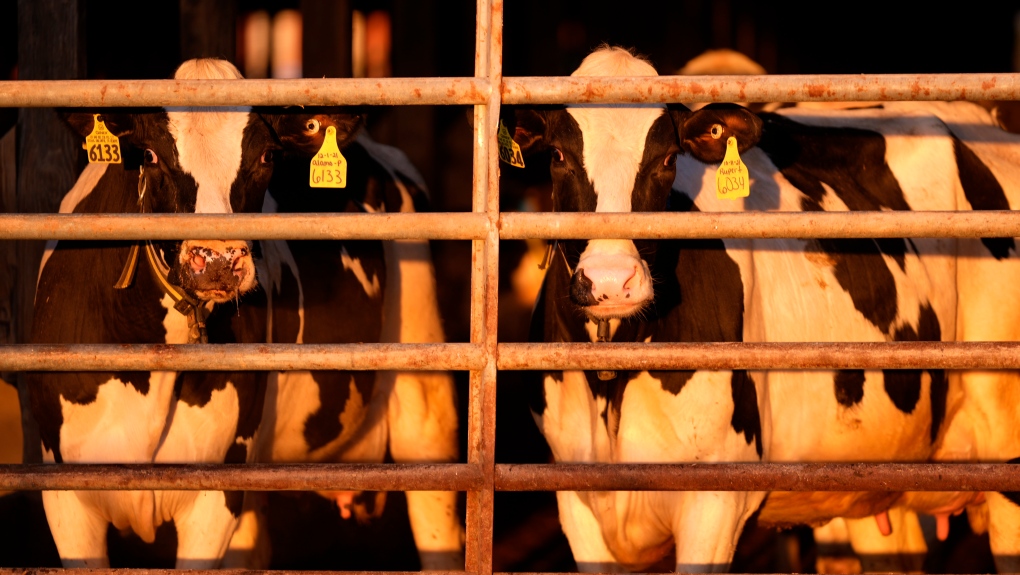Canada has told the U.S. that it’s willing to help with potential deterrence measures against Russia, which could include sanctions, to de-escalate the crisis in Ukraine, CBC News has learned.
Foreign Affairs Minister Mélanie Joly met with U.S. Secretary of State Antony Blinken on Dec. 31, when the offer was made, according to a source with knowledge of the matter.
The source said the message was well received by Blinken.
Bilateral talks between Russia and the U.S. are currently underway in Geneva over the near-eight-year war in Ukraine. Washington is working with allies, including Canada, to deter Russia from a full-blown invasion of Ukraine. Nearly 100,000 Russian troops are stationed near Ukraine’s eastern border.
The New York Times is reporting that the Biden administration and its allies are preparing new possible sanctions against Russia to try and de-escalate the situation. The sanctions could be imposed within hours if Russia were to invade Ukraine.
The sanctions could include cutting off Russia’s largest financial institutions from global transactions, imposing an embargo on some American technology, and even arming insurgents in Ukraine, the newspaper reported.
Ahead of Monday’s high-stakes talks, Blinken said the Biden administration has rallied countries beyond Europe and the Kremlin is facing two options.
“There’s a path of dialogue and diplomacy to try to resolve some of these differences and avoid confrontation,” Blinken told CNN Sunday. “The other path is confrontation and massive consequences for Russia if it renews its aggression on Ukraine.”
Canada working with allies on new measures
Global Affairs Canada (GAC) says it has already imposed a broad range of economic sanctions against more than 430 Russian and Ukrainian people and entities who facilitated the violation of Ukraine’s sovereignty or obstructed the work of international organizations in Ukraine. But Canada is working on other measures with allies, too, the government said.
“Canada continues to work with international allies and partners on additional measures on this matter,” GAC spokesperson Jason Kung said in a statement to CBC News.
Joly and senior government officials “remain actively engaged with U.S. and European partners as part of co-ordinated efforts to deter further Russian aggression against Ukraine and to encourage de-escalation,” wrote Kung.
Canada has been focused on working with like-minded countries to apply economic and diplomatic means to try and de-escalate the conflict. But Joly has also said publicly that she would use “all means necessary” to deter the “Russian threat,” the National Post reported last month.
GAC said Canada is “judicious in its approach about when it chooses to deploy sanctions,” and that sanctions are just one diplomatic tool. The department said Joly emphasized Canada’s full support of Ukraine’s sovereignty and independence at NATO’s Foreign Ministers’ Meeting.
200 Canadian troops in Ukraine
Canada is one of Ukraine’s biggest supporters and originally sponsored Ukraine’s bid to join NATO.
Russia is demanding new security guarantees from NATO, including denying membership to Ukraine and to halt its military deployments in Eastern Europe.
Moscow has said that is an essential condition to lowering tension and defusing the crisis in Ukraine.
There are currently about 200 Canadian Armed Forces members in Ukraine as part of an international training mission to help improve Ukrainian soldiers’ combat skills.
NATO and the U.S. have already said they will not send military members into Ukraine to defend the country if there is an invasion.
Canada has signalled it may be open to extending its operation in Ukraine and the Canadian Armed Forces contribution to NATO’s campaign of deterrence against Russia, according to Defence Minister Anita Anand’s mandate letter.
Heading into talks Monday, Russia’s news agencies reported that Deputy Foreign Minister Sergei Ryabkov said he was disappointed by signals he heard from Washington in recent days. Ryabkov also warned that the U.S. had a “lack of understanding” of the Kremlin’s security demands and said they would negotiate.
Ryabkov is negotiating in Geneva today with U.S. Deputy Secretary of State Wendy Sherman.
“The talks promise to be long and substantial,” the Russian diplomatic mission in Geneva tweeted, with a photo of the two lead negotiators standing in front of their national flags.
Following the bilateral meeting in Geneva, representatives from NATO will meet with the Russian delegations in Brussels.






More Stories
Norad looking to NATO to help detect threats over the Arctic, chief says – National | Globalnews.ca
Grocery code: How Ottawa has tried to get Loblaw, Walmart on board – National | Globalnews.ca
RCMP’s ability to defend national security is eroding, report warns | CBC News